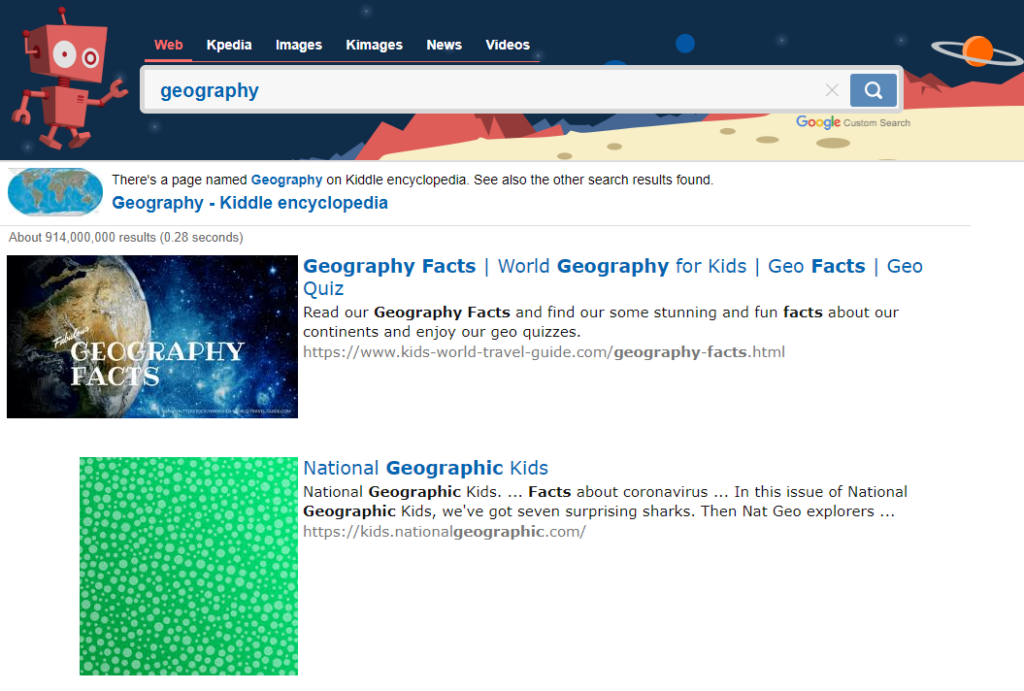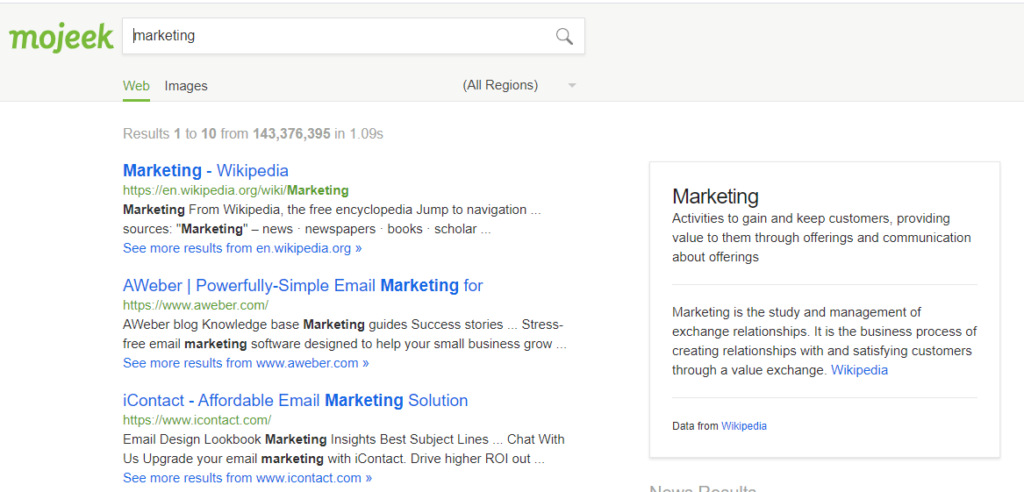Main web search engines like Google have their flaws, there’s no privacy and ads limit the top results you see when searching. Yes, there are the other big giants like Bing and Yahoo, but you will be surprised to know there are much more to explore. For new alternative ways to search the internet, here’s a list of weird search engines you didn’t know about.
1. Ecosia
Focus: Helping reforestation organizations from advertising revenue, private searching with encryption.

Ecosia is based in Berlin, Germany and provides 80% of their profits to non-profit organizations that help in reforestation. Ecosia works with projects to help save forests all over the world. Some examples are projects such as Plant A Billion Trees by Nature Conservatory that aims at restoring Brazilian Atlantic Forest. In 2020, it worked with Reforest Now which is a local NGO that focuses on reforestation and creating stable environments against fires.
If you are looking to give your part to save the environment, Ecosia is worth looking into. As a company, it considers itself CO-2 negative. Apart from focusing on saving our planet, it also respects your privacy.
As of 2018, searches are encrypted and not stored permanently. One important feature is that unlike Google, it does not sell your data to third-party advertisers because it does not track and create any personal profiles based on history. It uses a metasearch based on Bing but it improves its search by using its company’s algorithms.
Ecosia defaulted to Google Chrome in 47 markets as from March 2020. This is the first time a non-profit search engine will appear as a choice by users.
2. Yippy
Focus: Using clustering techniques to search, opening doors to searching the deep web.

The deep web is a part of the web that is unindexed and cannot be crawled using traditional web search engines. Yippy introduces a whole new technique of searching which in turn makes it easier to find this side of the web. It is powered by IBM and uses metasearch but provides results in the form of clusters.
Yippy clusters the queries into topical categories on the fly using hierarchical clustering algorithms. It presents users with concepts in large data sets that were previously unknown. A quick search in Yippy compared to Google will surely let you know the difference in the first page results and the way they are outlined. In the image above, you can see how the term ‘marketing’ can be clustered into several other related topics which can branch out your search.
It is also an anonymous service, and states in its privacy policy, that it does not store any information other than what the browser shares. This information is only stored during the session.
The Yippy search engine is also used in on-premise solutions called Yippy Search Appliance. It is the only vendor that exceeded all the client’s security needs such as healthcare, banking, government and law enforcement. It was marketed to replace Google Search Appliance when it declared it will stop.
3. Kiddle
Focus: Creating kid-friendly filtered search results

Kiddle is a visual search engine for kids powered by Google safe search. It filters out all adult content and promotes kid-friendly sites. It also blocks out any specific queries that are inappropriate.
The first 3 results are the safest and written specifically for kids and checked by their editors. The next 4 results are safe but not written for kids but presented in layman’s terms. The next results are safe but are not presented or written for kids. Any topics that are not considered suitable will not show any results.
However, certain topics they block out created some controversy. People argued that the engineers behind this service should not be able to decide what is right or wrong. Also searches appropriate for a certain age may not be appropriate for a younger kid. Kiddle states that it does not guarantee full safety of this.
Having said that, the server logs are deleted daily and does not store any user data. Therefore privacy is also respected here. The search engine also has an encyclopedia search called Kpedia. The top result usually points to a wiki article made specifically for kids.
4. Mojeek
Focus: Very serious on privacy; uses emotional search

Mojeek is hosted in the UK and boasts having the greenest data centre. Apart from being green, they also take privacy very seriously. They will not store any of your information. The only way it does store the data is if your query relates to illicit and immoral practices relating to minors.
Mojeek, unlike other search engines, has been building its own index since 2005. As of 2019, it reported around 2.3 billion indexed pages. It does not use any metasearch which means it will give you a different way to view the web.
It aims to remove any bias in search results. Mojeek infringes any restriction of results. It also does not give favour to advertisers or to their own affiliation. However, people argue that search algorithms will always have a bit of bias and do not agree with their statement. Moreover, their business is not fully transparent. It does not divulge information who their investors are.
One unique feature about Mojeek is searching by emotion developed alongside EMRAYS. The input search terms get results from pages that match their sentiment. A user can choose between love, surprising, funny, sad or angry emotion. This gives an interesting outlook on how information can be organized differently.
Final Thoughts and Considerations
Although these search engines are not popular, it doesn’t mean that they don’t have their own unique features that may be useful. In today’s world where everything is being tracked and stored online, these search engines prove to be a breath of fresh air. Attaining results without worrying that your queries and tracking information is being stored and sold, is something we have seemed to accept will never happen.
But, it doesn’t have to be that way. There are options out there, although not as powerful as Google, can still give sufficient results for your needs. On the plus side, these search engines also offer features that are not available in Google, such as organizing information in clusters or by sentiment. So as weird as they may be, they are still worth looking into!
At Gainchanger we automate the tedious part of SEO to allow you to scale your results exponentially and focus on what really matters.
Get in touch for a free 5-minute consultation or to start scaling your strategies today.

